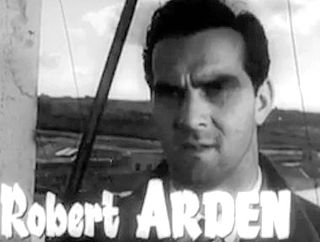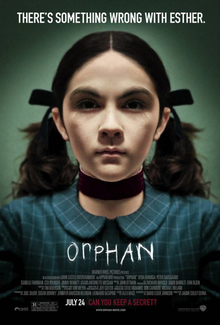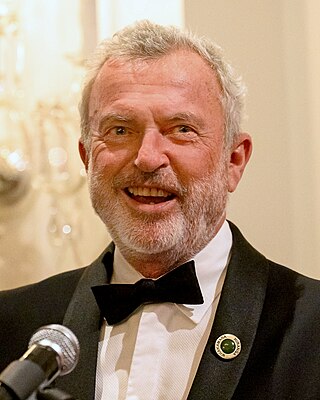
The Omen is a 1976 supernatural horror film directed by Richard Donner and written by David Seltzer. An international co-production of the United Kingdom and the United States, it stars Gregory Peck, Lee Remick, David Warner, Harvey Spencer Stephens, Billie Whitelaw, Patrick Troughton, Martin Benson, and Leo McKern. The film's plot follows Damien Thorn, a young child replaced at birth by his father, unbeknownst to his wife, after their biological child dies shortly after birth. As a series of mysterious events and violent deaths occur around the family and Damien enters childhood, they come to learn he is in fact the prophesied Antichrist.

Jerrald King Goldsmith was an American composer known for his work in film and television scoring. He composed scores for five films in the Star Trek franchise and three in the Rambo franchise, as well as for films including Logan's Run, Planet of the Apes, Tora! Tora! Tora!, Patton, Papillon, Chinatown, The Omen, Alien, Poltergeist, The Secret of NIMH, Medicine Man, Gremlins, Hoosiers, Total Recall, Basic Instinct, Air Force One, L.A. Confidential, Mulan, and The Mummy. He also composed the fanfares accompanying the production logos used by multiple major film studios, and music for the Disney attraction Soarin'.

Masada is an American television miniseries that aired on ABC in April 1981. Advertised by the network as an "ABC Novel for Television," it was a fictionalized account of the historical siege of the Masada citadel in Israel by legions of the Roman Empire in AD 73. The TV series' script is based on the 1971 novel The Antagonists by Ernest Gann, with a screenplay written by Joel Oliansky. The siege ended when the Roman armies entered the fortress, only to discover the mass suicide by the Jewish defenders when defeat became imminent.

House of Flying Daggers is a 2004 wuxia romance film directed by Zhang Yimou and starring Andy Lau, Zhang Ziyi and Takeshi Kaneshiro. Unlike other wuxia films, it is more of a love story than purely a martial arts film.

Timeline is a 2003 science fiction adventure film directed by Richard Donner and starring Paul Walker, Frances O'Connor, Gerard Butler, Billy Connolly, David Thewlis, and Anna Friel. Based on Michael Crichton's 1999 novel of the same name, the screenplay concerns a team of present-day archaeology and history students who are sent back in time to medieval France to rescue their professor from the middle of a battle.

Rambo III is a 1988 American action film directed by Peter MacDonald and co-written by Sylvester Stallone, who also reprises his role as Vietnam War veteran John Rambo. A sequel to Rambo: First Blood Part II (1985), it is the third installment in the Rambo franchise.

Damien: Omen II is a 1978 supernatural horror film directed by Don Taylor and the second installment of The Omen series. It stars William Holden and Lee Grant, with Jonathan Scott-Taylor, Robert Foxworth, Lew Ayres, Sylvia Sidney, Lance Henriksen, Ian Hendry, and Leo McKern. Set seven years after the first film, it follows a now-pubescent Damien Thorn (Scott-Taylor) as he begins to realize his destiny as the Antichrist.

Omen IV: The Awakening is a 1991 American supernatural horror television film directed by Jorge Montesi and Dominique Othenin-Girard and written by Brian Taggert, from a story by producer Harvey Bernhard and Taggert. The film is the fourth installment in The Omen series and the final installment of the original series. It stars Faye Grant, Michael Woods, Michael Lerner, and Asia Vieira. Its plot follows two attorneys who adopt a young girl, unaware of the fact that she is to possibly succeed Damien Thorn as the Antichrist.

The Omen is a 2006 American supernatural horror film directed by John Moore and written by David Seltzer. The fifth installment in The Omen series, it is a remake of the 1976 film of the same title, which was also written by Seltzer. This version stars Julia Stiles, Liev Schreiber, Mia Farrow, David Thewlis, Pete Postlethwaite, Michael Gambon and Seamus Davey-Fitzpatrick in his feature film debut.

Damien Thorn is a fictional character and the primary antagonist of The Omen franchise. He is the Antichrist and the son of the Devil. The character has been portrayed by Harvey Spencer Stephens, Jonathan Scott-Taylor, Sam Neill, Seamus Davey-Fitzpatrick and Bradley James.

Lisa Harrow is a New Zealand RADA-trained actress, noted for her roles in British theatre, films and television. She is perhaps best known for her portrayal of Nancy Astor in the British BBC television drama Nancy Astor.

Don Gordon was an American film and television actor. His most notable film roles were those in which he appeared alongside his friend Steve McQueen: Bullitt (1968), Papillon (1973) and The Towering Inferno (1974). Between the first and the last of those films he appeared in The Gamblers (1970), WUSA (1970), Cannon for Cordoba (1970), The Last Movie (1971), Z.P.G. (1972), Fuzz (1972), Slaughter (1972), The Mack (1973), The Education of Sonny Carson (1974) and Omen III: The Final Conflict (1981) as the ill-fated assistant to protagonist Damien Thorn.
Harvey Bernhard was an American film producer. He frequently collaborated with film director Richard Donner, notably on The Omen (1976), The Goonies (1985) and The Lost Boys (1987)
The Omen is a media franchise centering on a series of supernatural horror films which began in 1976. The series centers on Damien Thorn, a child born of Satan and given to Robert and Katherine Thorn, before being passed along the Thorn families as a child. It is revealed among the families that Damien is in fact meant to be the Antichrist, and as an adult is attempting to gain control of the Thorn business and reach for the presidency.

Robert Arden was a British-American film, television and radio actor born in London. He worked and lived mostly in the United Kingdom, where he specialized in playing American characters.
"Ave Satani" is the theme song to the 1976 film The Omen, which is composed by Jerry Goldsmith. The Omen won the Academy Award for Best Original Score, with Ave Satani nominated for Best Original Song.

Orphan is a 2009 psychological horror film directed by Jaume Collet-Serra and written by David Leslie Johnson from a story by Alex Mace. The film stars Vera Farmiga, Peter Sarsgaard, Isabelle Fuhrman, CCH Pounder, Jimmy Bennett and Aryana Engineer. The plot centers on a couple who, after the death of their unborn child, adopt a psychopathic nine-year-old girl with a mysterious past.

Sir Nigel John Dermot "Sam" Neill is a New Zealand actor. Neill's career has included leading roles in both dramas and blockbusters. Considered an "international leading man", he has been regarded as one of the most versatile actors of his generation.

A Satanic film is a subgenre of horror film, and at times other film genres, that involves the Devil as a concept or a character. Common themes/characters in Satanic film include the Antichrist, demonic possession, exorcism, and witchcraft.
Damien is an A&E television series based on the horror film series The Omen, which serves as a direct sequel to the 1976 film of the same name and ignores the film's various sequels. The show was ordered as a series on August 25, 2014, by Lifetime, but was moved to A&E on April 29, 2015, where it premiered on March 7, 2016.















